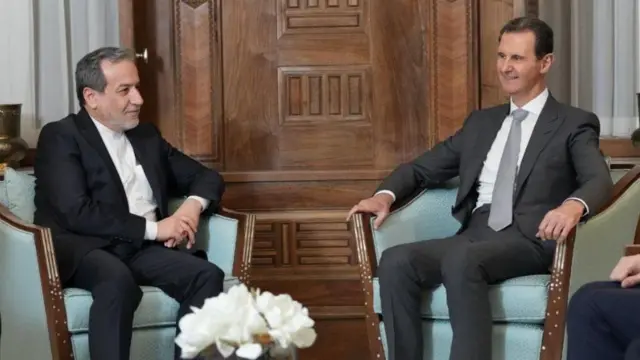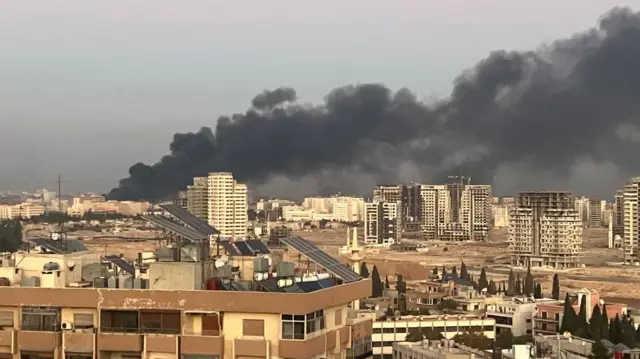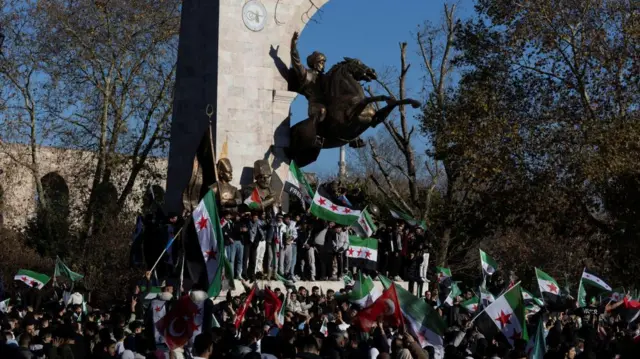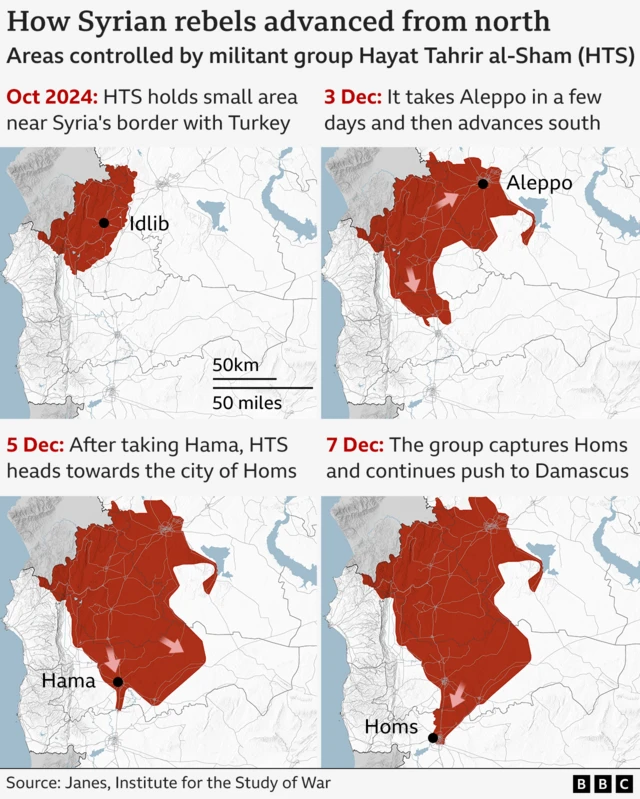End of Assad rule will reshape balance of powerpublished at 16:14 GMT 8 December 2024
 Hugo Bachega
Hugo Bachega
Middle East correspondent, reporting from Turkish border with Syria
 Image source, EPA
Image source, EPAThe end of the Assad rule will reshape the balance of power in the region. Iran, again, is seeing its influence suffer a significant blow. Syria under Assad was part of the connection between the Iranians and Hezbollah, the militia and political movement Iran supports in Lebanon. It was key for the transfer of weapons and ammunition to the group.
Hezbollah itself has been severely weakened after its war with Israel. In the most violent phase of the civil war, Iran sent advisers to Syria and Hezbollah deployed its fighters to help Assad crush the opposition. Russia, too, used its formidable air power. This time, however, they did not come to Assad’s rescue - and he was unable to survive on his own.
Iran has also seen the Houthis in Yemen being targeted in airstrikes. All these factions, plus militias in Iraq and Hamas in Gaza, form what Tehran describes as the Axis of Resistance, which has now been severely damaged.
This new picture will be celebrated in Israel, where Iran is viewed as an existential threat.
Many believe that this offensive could not have happened without the blessing of Turkey. For some time, President Erdogan had pressed Assad to engage in negotiations to find a diplomatic solution to the conflict that could allow the return of Syrian refugees. At least three million of them are in Turkey, and this is a sensitive issue locally. But Assad had refused to do so.
Turkey, which supports some of the rebels in Syria, has denied backing HTS, the Islamist group that led the insurgency.
HTS is sending conciliatory and diplomatic messages. But the dramatic changes could lead to a dangerous power vacuum and eventually result in chaos and even more violence.





















